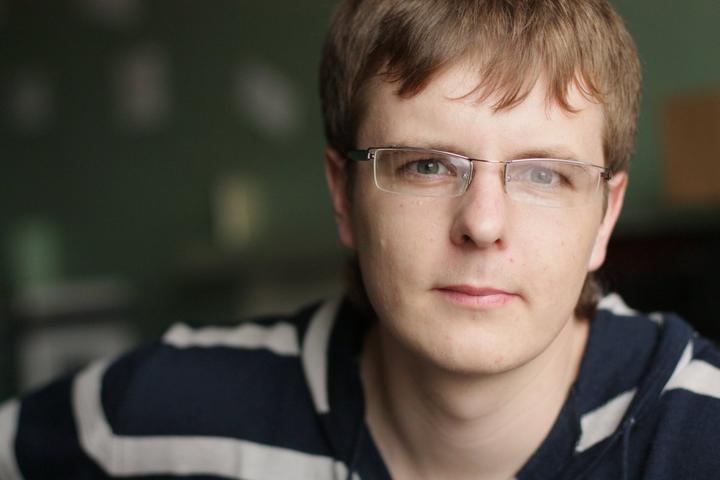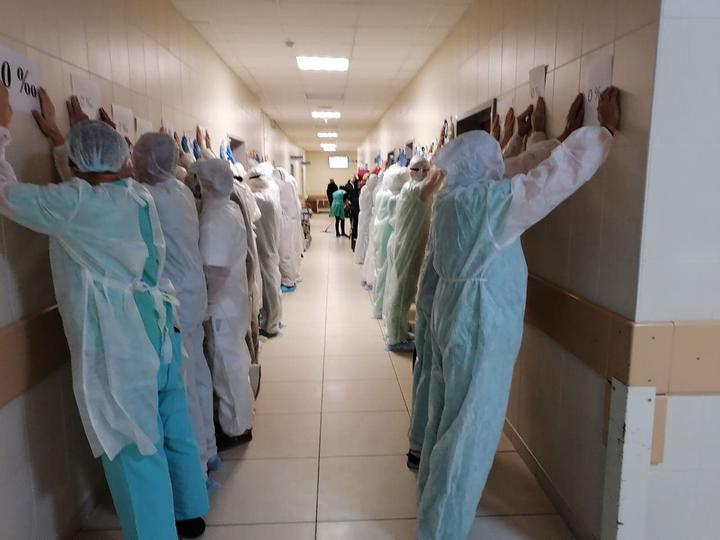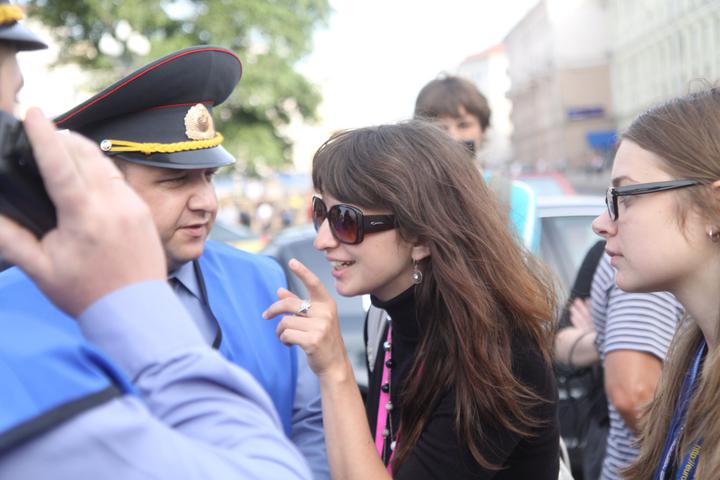Charges Filed Against Tut.by Journalist Katerina Borisevich
- 30.11.2020, 15:32
- 3,073

She remains in custody.
The time limit for bringing charges against the journalist tut.by Katerina Borisevich expired in the evening of November 29. Since she has not been released, we can conclude that Katerina is in the status of the accused and remains in custody. Lawyers signed a non-disclosure agreement in the broadest sense, so we do not know how long the strictest preventive measure will last. Based on practice, we can assume that it equals to two months, that is, until 19 January 2021.

The General Prosecutor's Office initiated a criminal case on the fact of disclosure of medical confidentiality, which caused grave consequences (Part 3, Article 178 of the Criminal Code). It is about the state of the deceased Raman Bandarenka. Katerina was the author of the article, which stated that there was no alcohol in his blood. Raman's relatives did not complain to the media or the medical staff, and his mother agreed to spread information about her son's condition.
On November 27, the leading independent mass media sent characteristics and appeals to the Prosecutor General's Office to change preventive measures for Katerina Borisevich that were not related to her detention. They also sent copies of diplomas and certificates that Katerina had received from the Prosecutor General's Office, the Investigative Committee, the Ministry of Emergency Situations and other agencies for covering the activities of law enforcement agencies in Belarus and legal education of citizens.
A criminal case was initiated under Part 3, Article 178 of the Criminal Code; this crime is classified as less serious. In 2019, the "historic" meeting of Lukashenka with law enforcement officials stressed the need for alternative measures of restraint (recognizance not to leave and proper behaviour, personal guarantee, bail, home arrest), not related to detention.
According to the law, the Prosecutor's Office has the right both to submit a case to investigative bodies (the Investigative Committee or the State Security Committee) and to conduct a preliminary investigation independently - "to ensure a comprehensive, complete and objective investigation of the circumstances of a criminal case" (Article 34). The latter happens very rarely. Now the Prosecutor General's Office investigates the case, as the story of STV TV channel shows.

Anesthesiologist Artem Sorokin is also a defendant in the criminal case. The STV TV channel showed a story where he admitted guilt under all charges delivered by the Prosecutor General's Office and urged his colleagues to return to work. We should recall that after the detention of Artem and Katerina, solidarity actions "zero permille" were held throughout the country.

Disclosure of medical confidentiality, which entailed serious consequences, is subject to imprisonment for up to three years with a fine and with or without deprivation of the right to hold certain positions or engage in certain activities. In general, proceedings on the fact of disclosure of medical confidentiality are initiated on the application of the victim, since it is a case of private prosecution (part 1, Article 178 of the Criminal Code). However, if this is a case of grave consequences (part 3 of article 178 of the Criminal Code), namely, this wording is used by the Prosecutor General's Office, and it is a case of public prosecution, and law enforcement agencies, including the Prosecutor's Office, can initiate a case without a statement of the victim, as it happened in this case.
What are the "grave consequences" regarding Article 178 of the Criminal Code? The commentary to the Criminal Code notes that "grave consequences are, for example, consequences that led to the dismissal of a person from his position, divorce, suicide, illness with mental illness, etc.". As we can see, these consequences directly relate to the person whose diagnosis has been made public. What does the Prosecutor General's Office say about the "grave consequences"? " Actions of the named persons (doctor and employee of tut.by. - Ed.) have entailed serious consequences, expressed in the increased tension in the society, the atmosphere of distrust to competent state bodies, incitement of citizens to aggression and illegal actions".
Katerina is in pre-trial detention centre No. 1 on Volodarskogo Street in Minsk. Living conditions there are worse than in the KGB pre-trial detention facility, where a journalist stayed for almost a week. The prisoners who passed through Volodarka, we know that there are problems with overcrowding, the cells are damp, clothes get dry for a few days, and another test is smokers, who make up the majority in the cells. They smoke there. We still have no data that Katerina receives letters to the pre-trial detention centre No.1 ( she received only one letter in the KGB pre-trial detention centre), although it is known that dozens of people have already sent her letters and postcards.
Lawyer Liliya Vlasova told in detail about conditions in women's cells on Volodarka; she was detained for a month and a half:
- There were ten people in the cell, and I spent three weeks, until the day of my release. The conditions were severe. There are ten iron beds in a small room, a toilet and a sink have only cold water, there was no daylight. In addition to the bars, the windows were blocked with iron blinds that did not let daylight in and made it difficult for the air to get through. We woke up at 6 am. Till the time of lockdown at 10 pm, you cannot lie down, one can walk and sit on the bed. I was allowed to lie on the bed due to my health condition. There was a TV set in the cell which broadcasted only Belarusian channels and NTV. Ten people slept, ate, did the laundry and went to the toilet in one room.
Eight out of ten women smoked. Sometimes I felt that I couldn't breathe. I had to "catch" the air. I lost my sense of smell and still do not feel anything. When we met, the cellmates felt sorry for me and started smoking less. They can not give up cigarettes, because smoking and drinking coffee is the only pleasure for them. All prisoners have personal mugs. Once these mugs were enamelled, but the enamel worn out, I had a mug with a rusty bottom. I asked to replace it. They brought the same one and said there was nothing better than that. My husband tried to give me a plastic mug several times; they did not take it. I had no choice and used the one I had and tried to ignore the rust.
Katerina Borisevich has been working for more than 10 years as a journalist. She has received professional awards, including those issued by the law enforcement agencies of Belarus. She specializes in covering legal topics and wrote about many sound criminal cases.

The Belarusian Association of Journalists demands the immediate release of Katerina Borisevich. Addressing the Prosecutor General's Office in the first place, the BAJ urges to focus on those responsible for Raman Bandarenka's death (the case is being investigated by the Prosecutor General's Office) and not to prosecute the journalist who prepared the material and the doctor who commented on a socially important topic without violating the rights of relatives of the deceased.
Amnesty International, an international human rights organization, recognized the journalist tut.by and an anesthesiologist at the emergency hospital as prisoners of conscience. Belarusian human rights organizations recognized Borisevich as a political prisoner.









